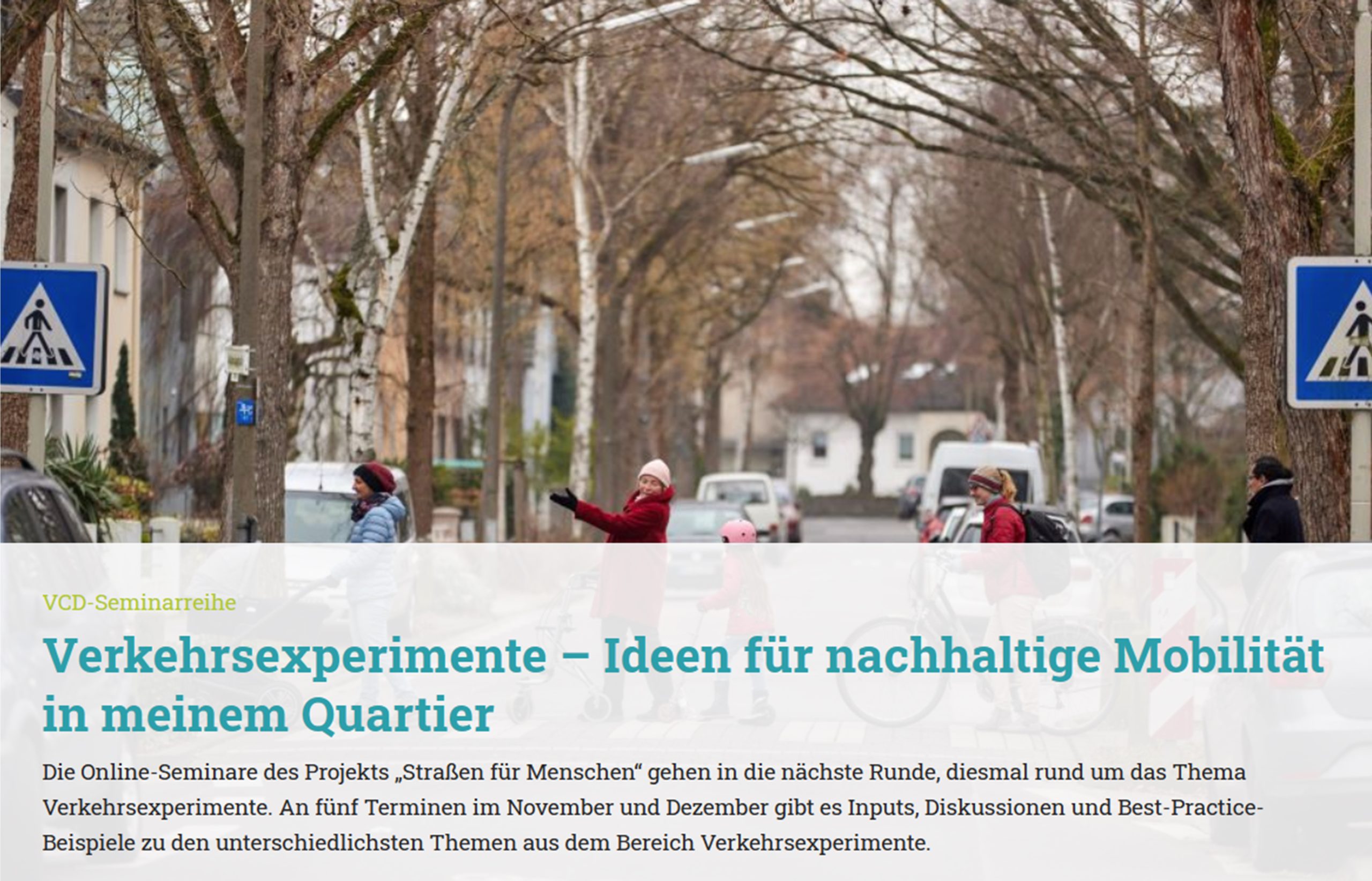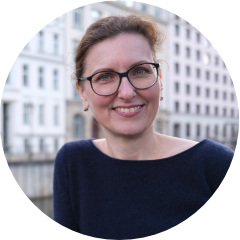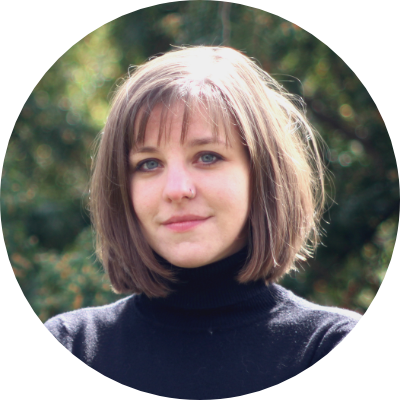
- This event has passed.
Dr. Julia Jarass bei der VCD-Seminarreihe „Verkehrsexperimente – Ideen für nachhaltige Mobilität in meinem Quartier“
November 16, 2022um17:00 - 18:30

VCD-Seminarreihe
Verkehrsexperimente – Ideen für nachhaltige Mobilität in meinem Quartier
Public space is a scarce resource. At the moment, the car takes up the most space. But things do not have to stay as they are - if we are willing to experiment with what a transformation of transport and public space could look like.
There are already many good ideas and concepts for this. From neighbourhood blocks, meeting zones, shared spaces and pop-up bike lanes to 30 km/h speed zones, play streets and promenades to the repurposing of individual parking spaces - the range of possibilities is wide, and we want to take a closer look at some of them in this seminar series.
With this digital seminar series from the project "Straßen für Menschen" (Streets for People), we would like to support citizen engagement for the transport turnaround. The project is funded by PHINEO as part of the Initiative Mobilitätskultur and the seminar series is further supported by GLS Treuhand.
1. Traffic experiments - The legal basis
The seminar series started with lawyer Dr Olaf Dilling (re|Rechtsanwälte), who gave an overview of the legal requirements of different ways to reshape transportation. What is a traffic experiment? How can traffic experiments be legally justified? Who is actually responsible if I want to make my neighbourhood less car-dependent? Olaf Dilling answered these and other questions with the help of examples.
When: 2 November, 17-18:30.
Recording as a video (in German) .
Kiezblocks - Bottom-up urban design
At this session we focused on the topic of Kiezblocks. A residential area without through traffic - that is what many residents want. With Dirk von Schneidemesser, who does research on the topic at the IASS and is active in Changing Cities on neighbourhood blocks - or Kiezblocks in Berlin, and Michael Dettmer from the Hamburg initiative Superbüttel , we looked at how the Superblock concept works and what it takes to implement it in our own neighbourhood.
When: 9 November, 17-18:30
Recording as a video (in German) .
3. Shaping public space together: Shared Spaces and Places of Encounter
Public space is a scarce resource. There are many ideas on how to design this space to meet the different needs of all people. At this event, Julia Jarass (DLR) told us, among other things, about the findings from the scientifically assisted real-world experiment in which an intersection in Berlin was redesigned into a city square and what we can learn from this for traffic experiments.
When: 16 November, 17-18:30
Recording as a video (in German) .
4. Alternatives to commuting: What does it take for commuters to leave their cars at home and switch to cycling, public transport or other alternatives?
What do people who have to travel long distances to get to work need as an incentive to leave their cars at home? What alternatives are there and how can these be made attractive? We addressed these questions in the fourth part of the seminar series together with Luca Nitschke (ISOE), who reported from the ongoing project "Mobilitätexperiment - Alternativen zum Pendeln" (Mobility Experiment - Alternatives to Commuting).
When: 30 November, 17-18:30
Recording as a video (in German) .
5. Participation and acceptance - What can good citizen participation look like and how do you convince people to accept traffic experiments?
For a traffic redesign, whether in the form of a neighbourhood block, an place for encounter or a pop-up bike lane, not only to succeed but also to be accepted and adopted by the people, citizen participation is crucial. At the end of the seminar series , we wanted to find out what it takes to achieve this. For this, we invited Katharina Götting, a researcher at the IASS on the topic of acceptance of temporary transport infrastructure, and Matthias Trénel, an expert on public participation processes and managing director and co-founder of Zebralog.
When: 07 December, 17-18:30
Contact

Tanja Terruli
Project management “Straßen für Menschen”
Phone: 030/28 03 51-37
tanja.terruli@vcd.org

Katharina Klaas
Project manager "Verkehrswende: klimaverträglich und sozial gerecht"
& "Straßen für Menschen"

